- Home
- Rick Mofina
Jason Wade - 02 - Every Fear
Jason Wade - 02 - Every Fear Read online
Praise for RICK MOFINA
“At full throttle from the first page and doesn’t let up till the last.”
—Linwood Barclay on Every Fear
“A snappy action-packed, hard-to-put-down thriller.” Daily Mail on The Dying Hour
“Rick Mofina keeps you turning the pages with characters you care about, a believable plot and as many twists as it takes to keep the suspense at a high level until the shattering conclusion.” Peter Robinson on The Dying Hour
“It moves like a tornado.” James Patterson on Six Seconds
“Grabs your gut – and your heart – in the opening scenes and never lets go.” Jeffery Deaver on Six Seconds
“Classic virtues but tomorrow’s subjects – everything we need from a great thriller.” Lee Child on Six Seconds
Also by Rick Mofina
SIX SECONDS
Jason Wade novels
THE DYING HOUR EVERY FEAR
Coming soon
PERFECT GRAVE
Every Fear
Rick Mofina
www.mirabooks.co.uk
This book is for Stephen, Mary, Teresa and Amanda
And the king said, Divide the living child in two and give half to the one and half to the other.
Then spake the woman whose the living child was unto the king, for her bowels yearned upon her son, and she said, O my lord, give her the living child, and in no way slay it. But the other said, Let it be neither mine not thine, but divide it.
—Kings 1:3
DAY ONE
1
In the hour before sunrise, a blackbird slammed into Maria Colson’s bedroom window, jolting her awake, its wings flapping in panic against the glass before it vanished.
She reached for Lee’s side of the bed. He wasn’t there. He’d gone out on a call around midnight. Something about a rig on I-5, up near Jackson Park. His whiskers had brushed her skin when he’d kissed her good-bye.
Maria considered the bird. It was crazy to worry. Everything’s fine, she assured herself, nestling in the middle of the bed. By the light of the dying moon she saw Dylan’s crib across the hall. Maybe she should check on him. A bird hitting the house was an omen her grandmother had always feared. But Maria was so exhausted. She had been up every hour with Dylan and all night last night. She was too tired to be superstitious. Unease prodded her until at last she heard him stir and sighed with relief.
Everything was fine, just a crazy bird and a silly old wives’ tale.
Maria floated back to sleep but it was troubled. Her dreams were haunted by the anguish she and Lee had endured over the last few years, grotesque flashes of the painful times and her irrational fears of something bad lurking out there.
Stop. Never again. Please.
Mercifully, her subconscious guided her to her sanctuary. A Caribbean beach, the warm azure water caressing her toes, palm fronds swaying in the breeze. The sound of a baby crying. A baby? Dylan was pulling her back to reality. She groaned awake.
“Oh honey. Just a few more minutes.”
His crying intensified.
“All right, sweetie, I’m coming.”
Stiff and tired, she dragged herself first to the bathroom, then downstairs to the kitchen, then back upstairs to Dylan’s room. She took him into her arms. He was wet. She changed him, settled into her rocker, and fed him.
She kissed his fingers and his head.
Dylan was her miracle.
Because she’d injured her pelvis in her teens, the doctors had told her she would never be able to have children. But she had refused to believe them, refused to give up hope. She had begged God to let her have a baby, pleaded that if heaven allowed it, she would ask for nothing more.
And it happened.
After years of trying. Everyone was surprised.
Everyone but Maria.
She smiled at Dylan and rocked him gently, her heart aching with love for him, for Lee, for their life together. It was not perfect. The dark times had strained their marriage. The hard times had strained their bank account. But things were better now.
Lee was earning a little more at the shop. It had been a struggle, but with his overtime and bonus they were adjusting to the reduced income while she stayed home with Dylan. Deep down Maria knew that as long as they had each other, everything would work out.
The sun had risen.
Dylan had fallen asleep. She put him back in his crib, showered, dressed in faded jeans, a Mariners T-shirt, and white sneakers. The kitchen was a mess in the wake of the last few hectic days with Dylan. Lee had done his best to clean up. She’d take care of it today, she thought, getting herself orange juice, a banana muffin, and the morning paper.
She unfolded the Seattle Mirror and gasped.
The large, front-page photo showed a fireball from a series of delayed explosions after a tanker had rolled on I-5 at the city’s northern edge.
Lee’s tow truck was in the chaos.
The phone rang and her heart skipped a beat.
Upstairs, Dylan began to cry. She stared at the news picture, then at the ringing phone. Lee’s truck glowed. She couldn’t see him.
Oh no.
Her mind raced and she forced herself to answer.
“Hey babe, it’s me,” her husband said over the chaos of compressors and steel striking steel.
“Lee! Thank God, you’re okay!”
“Why wouldn’t I be?”
“I just saw the picture in the Mirror.”
“Oh, that. Wild, huh? I had just pulled up. The driver thought his pup trailer was empty, but there was some sort of vapor lock. Nobody got hurt.”
“I’m so glad.”
“Yeah, not a scratch on my truck. I went right to the shop after we finished up at the scene. How’s it going at the homestead?”
“It’s been a strange night. A bird hit our window.”
“What? Did it break the glass?”
“No. It was just odd.”
“How’s Dylan?”
“Cranky. Cried all night and he’s crying again. We’re out of milk and bread. I’ll take him over to the store.”
“Listen, Lou told me this morning that he’s serious about selling the towing business. I figure that when you go back full-time at the supermarket we might be able to swing a small loan. This could be our chance. What do you think?”
A few seconds of silence passed.
“Maria?”
“We should talk about it later. I’ve got to get Dylan.”
“Sure, give him a kiss for me. I love you.”
“Love you too. Be careful.”
After dressing Dylan, Maria said, “Let’s go, kid, we’re taking this show on the road.”
A few minutes later, Dylan was murmuring softly in his stroller.
The Colsons’ small, two-story frame house was in Ballard, a sedate older neighborhood in northwest Seattle. Located near Salmon Bay and the Ballard Locks, its history reached back to the late 1800s as a community of shipbuilders, most of whom had come from Scandinavia.
It was safe here.
Maria loved the tranquillity. Birdsong and breezes swept off Puget Sound through the maple, sycamore, and willow trees. Two doors down, the Stars and Stripes fluttered from the flagpole over the retired colonel’s porch. He kept it so pretty, Maria thought, admiring the overflowing flower boxes.
Not much happened in this sleepy part of Ballard, except at the end of the street at the Lincoln place. The estate was renovating the big colonial house, and there was an influx of strangers. A lot of contractors’ trucks coming and going. They were doing a beautiful job.
At the corner, while crossing the street, Maria thought how weird it was with the bird, Lee at the wreck, the picture i
n the Mirror. Lee would tease her about her omen of doom.
Then he’d want to talk about buying Lou out.
And what was she going to tell him? While he dreamed of owning his towing shop, she dreamed of staying home and trying to have another baby. They would have to talk it over. “Take stock of our situation,” Lee would say. Maria looked at Dylan. The motion was making him drowsy.
Several blocks later, by the time they had arrived at Kim’s Corner Store, Dylan was sound asleep. Great, Maria thought.
Kim’s had a narrow, pioneer-style storefront with large windows and a small, two-stair, step-up entrance.
Shannon, the teenage clerk with the captive-bead ring in her pierced eyebrow, was out front sweeping the sidewalk. Music leaked from the headset of her CD player as she bent over to coo at Dylan.
“Ahh. He’s such a little angel.”
“He’s been a little devil keeping me up these last few nights,” Maria said as she began maneuvering the stroller through the doorway. Dylan started to cry. “All right. All right.”
She stopped, parked the stroller on the sidewalk next to the store window, and picked him up. He cried harder, squirming in protest until she put him back down. Exhaustion rolled over her as she surrendered to the fact that Dylan wanted to sleep.
“You’re killing me, kid.”
Maria exhaled and Shannon slipped off her headset.
“You could leave him out here with me and let him sleep.”
“That’s so kind. Would you mind?”
“No problem.”
“I just need to grab a few things, thanks so much.”
Maria glanced up and down the street. Dylan would be fine outside with Shannon, just like the other times she’d left him with her. Maria was so tired, and he’d been so demanding these past few days. She would relish these few moments of peace.
The transom bells chimed.
Behind the counter Mrs. Kim smiled over her bifocals, her strong wrinkled fingers not losing a stitch of her needlepoint.
“Hello, Maria.”
“Good morning, Mrs. Kim.”
The worn wooden floorboards creaked as Maria headed to the back and the cooler. She heard a distant cell phone ringing. No other customers were in the store, it had to be Shannon’s.
After selecting a carton of milk with the freshest date, Maria went to the bread shelf, glancing through the shoulder-high aisles to the front window. She could see the top of the stroller and Shannon talking outside on the phone. She looked upset.
Maria went to Mrs. Kim at the front counter to pay. She set the milk and bread down, snapped open her wallet, and checked the sidewalk.
“Baby’s sleeping?” Mrs. Kim nodded pleasantly.
“Yes, he’s been a fusspot for the last two days.”
The transom bells jingled. Shannon strode to the rear of the store, phone pressed to her head, submerged in conversation. “That’s so not true and I’ve got his letter in my bag. I’m getting it—”
Maria checked on Dylan’s stroller, so close to her on the other side of the glass she could practically touch him. He was fine and she’d be finished in a few seconds.
As the register clicked, Maria noticed the revolving rack of the latest paperbacks near the counter, unaware of the large shadow that floated by out front. She needed a new book to read. A suspense thriller. Maybe she’d take Dylan to the park. The rack squeaked as she inventoried the titles. Catching something in her periphery, she looked up at Mrs. Kim, who was looking outside. The old woman’s face was all wrong, contorting as her jaw worked but formed no words. Maria followed her attention to the street. Her heart slammed into her ribs.
Dylan’s stroller had vanished.
In less than a second, part of Maria’s brain screamed at her circuits to form the cognitive command to react. Her body spasmed and a deafening roar split her ears.
Adrenaline propelled her to the street. All of her senses were pushed to superhuman levels as she saw Dylan’s stroller, rolling, toppling over the curb; saw the flash of his soft cotton blanket; heard the thud of a strange van’s door, the growl of its engine; felt her hand on metal, felt her fingers grip a handle, a mirror, as the van began pulling away.
Maria threw herself onto the hood of the moving van and pounded on its windshield. She glimpsed fingers clenching Dylan’s blanket, glimpsed his tiny arm, his hand, heard his screams blend with hers as she tried in vain to claw through the glass.
The van lurched, bucked, its motor snarling, brakes screeching until the world jerked to its side and the street flew up with a flash of brilliant light and pulled Maria to the ground. Through a galaxy of shooting stars she saw the van disappearing, Dylan’s stroller on its side, its wheels spinning as warm blood webbed over her flickering eyes.
The last things Maria remembered were Dylan’s sweet breath, Lee’s whiskered kiss good-bye, and the blackbird that hit her window.
2
Jason Wade’s stomach clenched as he walked to his desk in the empty newsroom.
Get ready for today’s verdict.
He began each morning shift at the Seattle Mirror by adjusting the police scanners. The paper kept several going simultaneously, monitoring emergency frequencies 24-7 across metropolitan Seattle.
The job meant deciphering the constant chatter, determining what was insignificant and what was the first hint of a story that would stop the heart of the city, or break it. It was a skill Jason had mastered. He had to. On the crime beat, you lived and died by what came across the radios.
All quiet so far.
Now, the moment of truth: to see how the Mirror did against its competition. Scoops brought you short-lived praise. A tie was a win. But to get beat on a story—to lose—well, woe to the reporter who missed one.
Editors were unforgiving.
Tensing, he compared final editions of the Times and the Post-Intelligencer with the Mirror.
Everybody had the same stuff. The party girl who fell to her death off the balcony near the university. Too much to drink. The drug bust with a few shots fired near Seola Beach. Nobody hurt. The stabbing in a bar fight in Burien. Victim will live. Even the late-breaker, the tanker fire on I-5 near Jackson Park. All stories matched. All nickel-and-dime stuff.
He relaxed a little, reached for his take-out coffee, hoping for a chance to work on his longer pieces.
There was an anniversary coming up for a shooting; he also had the sketchy terrorist thing out of Canada. Then the old cold case he’d found by chance while looking up something else in the archives. He’d wanted to follow up on them but never had the time.
Setting the papers aside, something caught his eye. Something about the tanker picture. The Mirror’s photo credit was “Special To The Mirror,” indicating a freelancer had taken it. Indicating a staff photographer was not there. Indicating that the night desk had likely missed it.
Not good.
Jason opened his e-mail for the overnight note just as he heard a female dispatcher relaying something about a traffic accident. Most wrecks were not news, but he picked up a trace of urgency, a tinge of emotion, in the dispatcher’s voice.
“Caller was crying. Stand by. We’ve lost the line, we’re trying to reconnect. Seventy-six?”
“Seventy-six. Ten-four.”
“Stand by.”
He blinked several times, locked two scanners onto the northwest channel, then looked outside. The Mirror was at Harrison and 4th, a few blocks north of downtown. The newsroom was on the seventh floor, its west wall was glass. Glimpsing the boats cutting across Elliott Bay, he suddenly felt old. He’d been on the beat for a year but was largely still considered a rookie. And it’d been a long time since he’d landed a good story. A long time since anything positive had happened in his life.
He glanced at the beaded bracelet on his wrist and thought of Valerie. She’d bought it for him at Pike Place Market. A long time ago. Then he turned to Karen Harding, staring from the tearsheets hanging from his lower wall. Jason wondered abou
t both women.
Girls he used to know.
Things don’t always work out, he thought before he resumed searching for the overnight note from the night cop reporter, Astrid Grant. Funny about her, how time hadn’t softened her hard feelings toward him. That was her problem.
Astrid was hired on a contract after coming in second to Jason for a full-time spot in last year’s internship competition. She was still bitter about it. She was the daughter of a Hollywood studio executive and accustomed to getting her way. After graduating from UCLA, Astrid had come to Seattle expecting to win a staff job. She was talented and beautiful, but had a reputation for attaching herself to other people’s stories for a byline.
Jason was a loner who did his own work.
He grew up in a blue-collar neighborhood between the west bank of the Duwamish River and Highway 509. It was near Boeing Field and the shipyards, a place where all he’d wanted, since the day he started delivering the Mirror, was to be a newspaper reporter.
Pursuing that dream had not been easy for him.
His old man was a recovering alcoholic who’d worked in a brewery. Jason had driven a forklift there to put himself through community college. He also hung out with cops and sold crime features to Seattle’s big dailies.
Impressed with his hustle, an editor at the Mirror offered him a last-minute spot on its intern program last year. It was his shot. He went up against five prima donnas, including Astrid, all of them from big J-schools with experience at big papers, all going full tilt for a single position. Jason won out. After he broke a major exclusive, the Mirror made him a full-time staff reporter.
But it almost didn’t happen, thanks to his old man. To this day, his father refused to talk about the incident that forced him off the Seattle police force. It’d cost him his marriage and nearly took Jason down with him because the drinking strained their relationship to the breaking point.

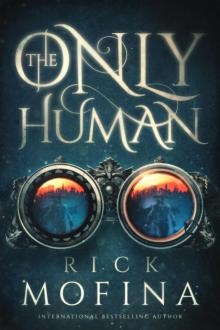 The Only Human
The Only Human Tom Reed Thriller Series
Tom Reed Thriller Series![[Tom Reed and Walt Sydowski 04.0] No Way Back Read online](http://i1.bookreadfree.com/05/tom_reed_and_walt_sydowski_04_0_no_way_back_preview.jpg) [Tom Reed and Walt Sydowski 04.0] No Way Back
[Tom Reed and Walt Sydowski 04.0] No Way Back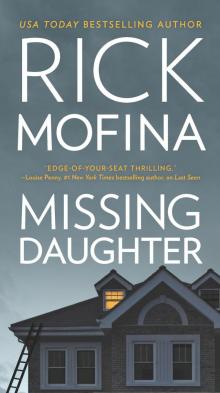 Missing Daughter
Missing Daughter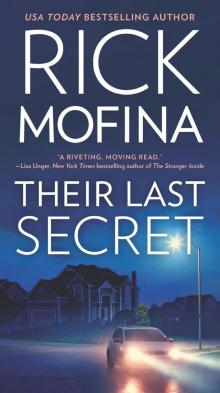 Their Last Secret
Their Last Secret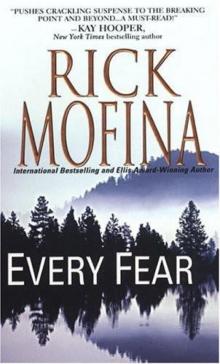 Jason Wade - 02 - Every Fear
Jason Wade - 02 - Every Fear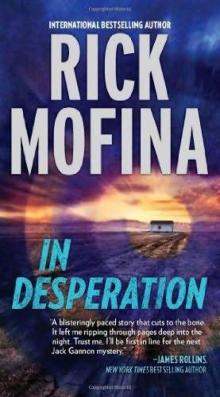 In Desperation
In Desperation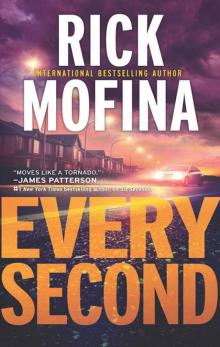 Every Second
Every Second Full Tilt
Full Tilt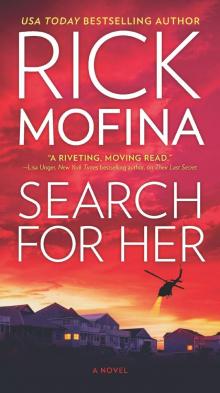 Search for Her
Search for Her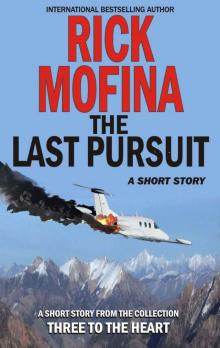 The Last Pursuit
The Last Pursuit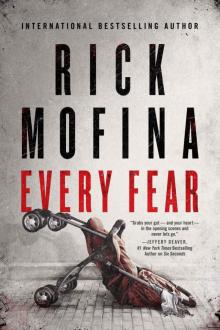 Every Fear
Every Fear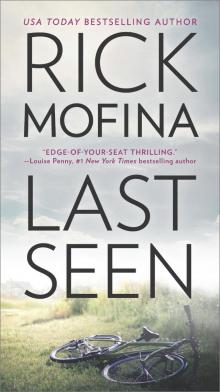 Last Seen
Last Seen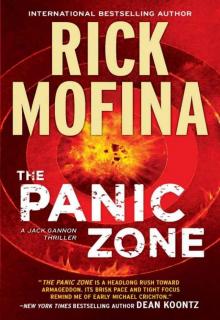 The Panic Zone
The Panic Zone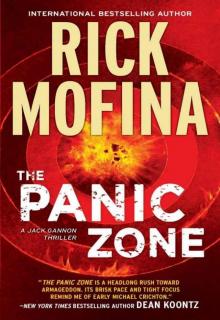 The Panic Zone jg-2
The Panic Zone jg-2 Free Fall
Free Fall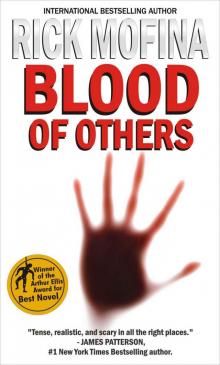 Blood of Others
Blood of Others![[Jason Wade 02.0] Every Fear Read online](http://i1.bookreadfree.com/i1/03/31/jason_wade_02_0_every_fear_preview.jpg) [Jason Wade 02.0] Every Fear
[Jason Wade 02.0] Every Fear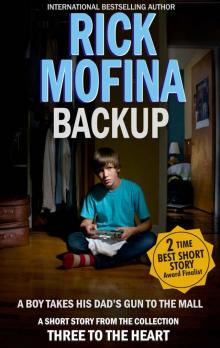 Backup
Backup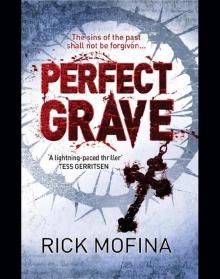 Perfect Grave
Perfect Grave Into the Dark
Into the Dark Whirlwind
Whirlwind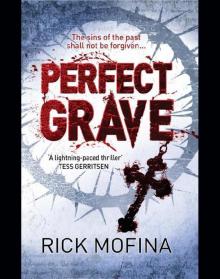 Perfect Grave jw-3
Perfect Grave jw-3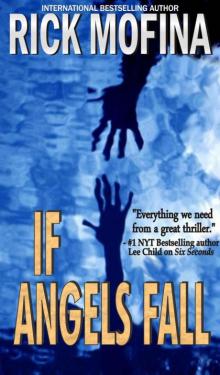 If Angels Fall (tom reed and walt sydowski)
If Angels Fall (tom reed and walt sydowski)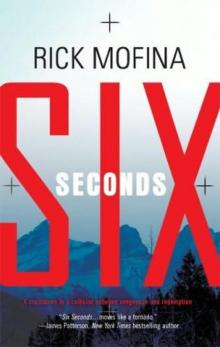 Six Seconds
Six Seconds If Angels Fall
If Angels Fall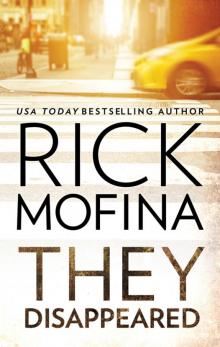 They Disappeared
They Disappeared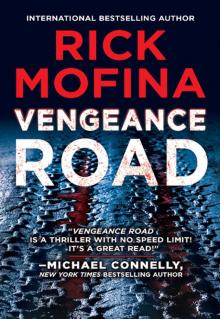 Vengeance Road
Vengeance Road Before Sunrise
Before Sunrise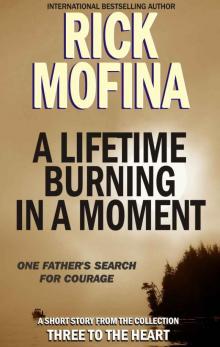 A Lifetime Burning in a Moment
A Lifetime Burning in a Moment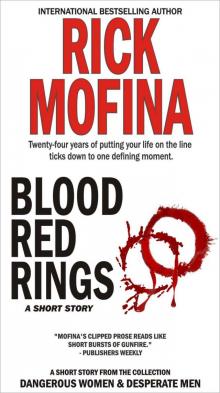 Blood Red Rings (Dangerous Women & Desperate Men)
Blood Red Rings (Dangerous Women & Desperate Men)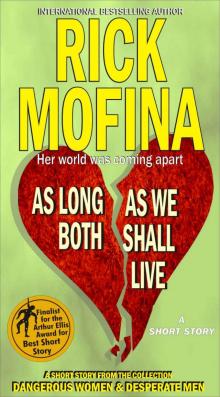 As Long As We Both Shall Live (Dangerous Women & Desperate Men)
As Long As We Both Shall Live (Dangerous Women & Desperate Men)![[Tom Reed and Walt Sydowski 01.0] If Angels Fall Read online](http://i1.bookreadfree.com/i2/04/12/tom_reed_and_walt_sydowski_01_0_if_angels_fall_preview.jpg) [Tom Reed and Walt Sydowski 01.0] If Angels Fall
[Tom Reed and Walt Sydowski 01.0] If Angels Fall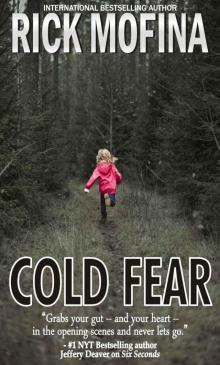 Cold Fear
Cold Fear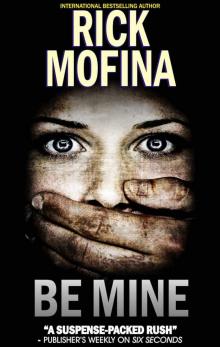 Be Mine
Be Mine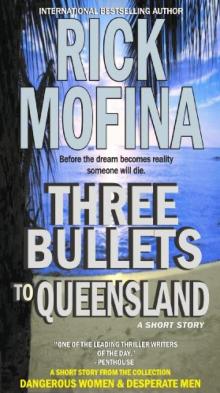 Three Bullets To Queensland
Three Bullets To Queensland